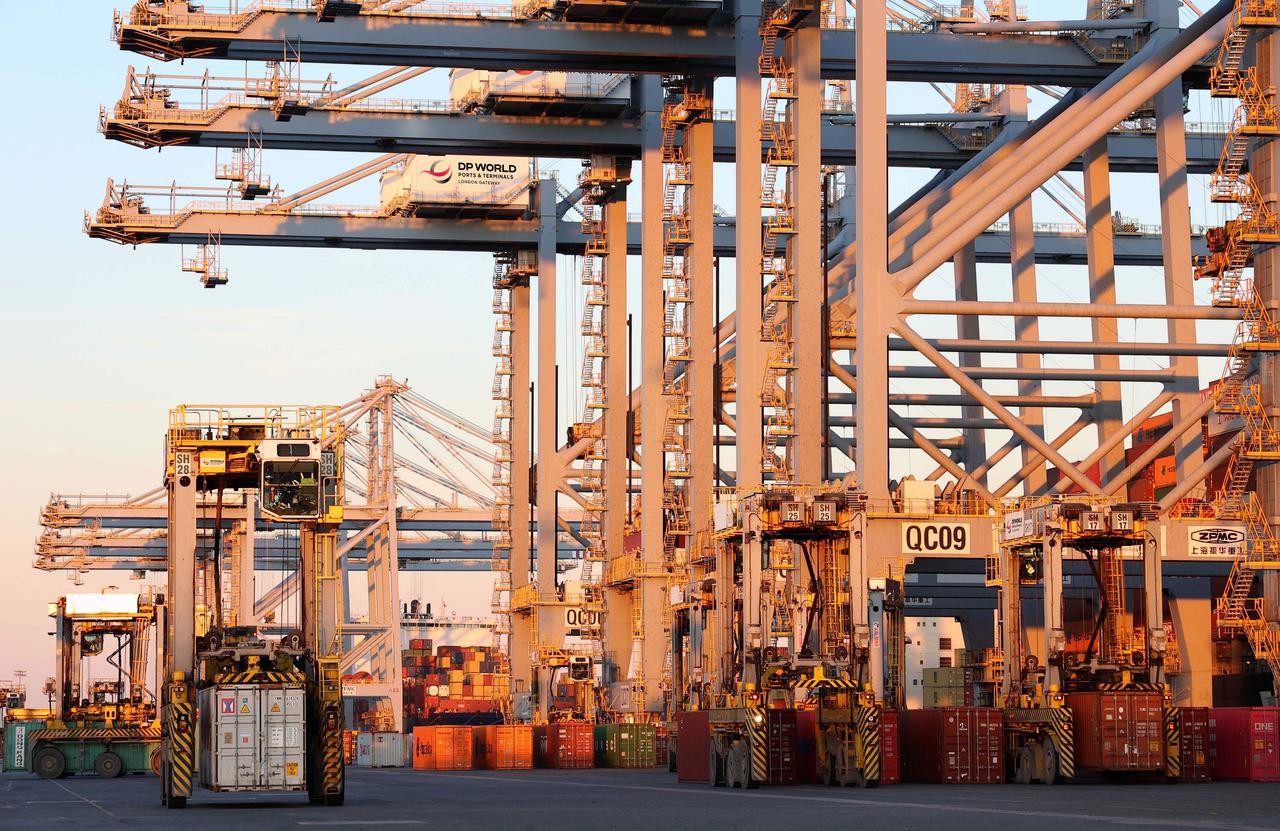By Nandita Bose
WASHINGTON, April 5 (Reuters) – President Joe Biden took an aerial tour on Friday of the collapsed Baltimore bridge that is blocking a key East Coast shipping lane, and he pledged federal help in rebuilding the span, an idea some Republican lawmakers in the U.S. Congress have resisted.
A cargo ship crashed into the Francis Scott Key Bridge on March 26, sending it splashing into the harbor. Work to clear the wreckage and restore traffic through the Mid-Atlantic state’s shipping channel is ongoing.
Aboard his Marine One helicopter, Biden flew over the scene of the disaster, where six people were killed, to get an aerial view. He met local officials for a briefing on the economic impact to the Baltimore port, an important shipping destination for ships to offload automobiles.
Speaking with the fallen bridge behind him as an imposing backdrop, Biden vowed “we will not rest” until the bridge is rebuilt and the area is back to normal.
He called on Congress to approve funding for the new bridge as soon as possible.
“I’m here to say your nation has your back and I mean it,” Biden said. “We’re going to get this paid for.”
He also vowed that the parties responsible for the bridge collapse will help pay to repair the damage and “be held accountable to the fullest extent the law will allow.”
Biden later met the families of the six people killed in the accident.
State and federal officials have raised alarms over the hardships the port’s closure could impose on the regional economy with thousands of port workers already idled.
The Port of Baltimore ranks first in the U.S. for volume of autos and light trucks and farm and construction machinery handled, according to the state of Maryland. Most of that traffic has been suspended since the accident, though some terminal operations outside the affected area have resumed.
The White House’s Office of Management & Budget (OMB), in a letter to Congress on Friday, asked the federal government to cover the bridge replacement, which federal officials say could cost at least $2 billion.
Some Republican hardliners in the U.S. House of Representatives oppose using new federal dollars to fund the bridge’s reconstruction. Such a request could probably pass the Senate, controlled by Biden’s fellow Democrats, but may run into trouble in the narrowly divided House.
The House Freedom Caucus, a bloc of roughly three dozen hardline Republicans who can wield outsized influence over House Speaker Mike Johnson, on Friday issued a series of demands in exchange for their cooperation.
The six victims of the bridge collapse were all immigrants from Mexico and Central America, who were fixing potholes on the road surface of the bridge when it collapsed. Four of the bodies have still not been recovered, but all are presumed dead.
Biden’s meeting with the families of these immigrant workers comes as his rival Republican presidential nominee Donald Trump has ramped up anti-immigrant rhetoric and cast migrants as dangerous criminals “poisoning the blood” of America.
FUNDING FOR THE BRIDGE
Hours after the bridge collapse, Biden said the U.S. government would “pay the entire cost” of reconstruction and his administration announced $60 million in emergency relief last week.
The administration will pursue all avenues to recover costs and “ensure that any compensation for damages or insurance proceeds collected will reduce costs for the American people,” Office of Management and Budget Director Shalanda Young wroteon Friday.
White House officials have held talks in recent weeks with Johnson’s office over billions in aid for Ukraine and Israel as well as money for the collapsed bridge, according to two officials familiar with conversations who askednot to be named.
The spending measures separately have bipartisan support, but the White House is aware that Johnson must satisfy his hardline colleagues, which means many spending proposals will be tethered together in order to pass, the officials said.
The Freedom Caucus, whose members helped oust Johnson’s predecessor last year, said Congress should seek “maximum liability” from foreign shipping companies.
It also demanded that any aid be fully offset with spending cuts and that the Endangered Species Act and other regulations are waived to avoid delays.
(Reporting by Nandita Bose in Washington, Additional reporting by Jarrett Renshaw, Rick Cowan; David Morgan, Susan Heavey and Daniel Trotta; Writing by Steve Holland; Editing by Mary Milliken, Sonali Paul, Chizu Nomiyama and David Gregorio)
(c) Copyright Thomson Reuters 2024.

 Join The Club
Join The Club











